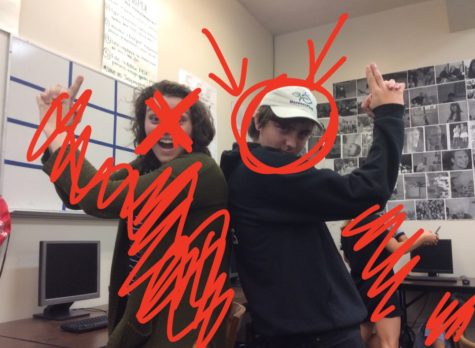“Planes, Trains, and Automobiles” Makes The Definitive Thanksgiving Movie
December 3, 2014
There are movies for every season, but one that often gets overlooked is Thanksgiving. It might be that there is nothing about this holiday that is compatible with the flashy, fun Hollywood blockbuster, or maybe it’s that all of people’s feel-good movies are heaped onto the Christmas season – a more easily marketable Holiday. The themes of Thanksgiving are subtle, quiet, and hard to sell. The movie that captures this spirit perfectly is the 1987 film Planes Trains and Automobiles. In the film, Steve Martin and John Candy play Neal Page and Del Griffith, two travelers stuck away from home during the Thanksgiving Holiday rush. As the wild antics of their journey home ensue, the movie takes focus on the relationship between these two characters, and draws from madness touching meaning.
Neal and Del are stereotypes: Neal a formal, strict businessman, and Del a big, rude, and lovable salesman. When the two strangers’ plane is diverted due to a snow storm, the two have to battle unreal transportation crises to get themselves home for Thanksgiving. Neal and Del are polar opposites. When they find themselves stuck sleeping together in the same bed one night, an overview shot displays their two personalities – Neal’s side spotless and squared away, and Del’s littered with trash, crumbs, and personal belongings. Their relationship starts out with conflict, but as one might expect, the events of the movie start to bring the two together. The storyline is predictable, while still packing some serious laughs, but this movie’s story is not what matters. Rather, through the progression of their relationship, Neal’s and Del’s characters are the vehicles for revealing theme. Though they may be simple outwardly, Neal and Del are written with little nuances that bring the movie to life.
Neal Page is having the worst week of his life. As his flight is cancelled, his train malfunctions, his luggage is destroyed, and he is abandoned in the middle of nowhere, his outer demeanor changes only slightly. Gritted teeth, muttered insults, and sarcastic stares express everything the audience needs to know about his mood. A stroke of brilliance in this movie is that every person Neal interacts with contrasts with his mood by being boundlessly happy and unforgivably friendly. He hates them for it, and the audience hates them too. This tension finally culminates in an unforgettable scene in which all of Neal’s emotion is released in one of the best angry rants in movie history. The audience feels for him. Who hasn’t had a day when everything went wrong? Who hasn’t felt annoyed when no one can be as grumpy as them?
Then there’s Del Griffith. He creates the portrait of a happy go lucky guy with never a care in the world. He traipses through his dour circumstances cracking bad jokes, rattling on about hating “chowderheads who can’t keep their mouths shut”, and selling shower curtains at high prices to gullible teens as earrings. His constant smile and vibrant clothes clash with Neal’s grey scowl. But there is something beneath this outward demeanor. The audience doesn’t get much, just a few slip-ups while talking; the occasional strange mention. The audience catches it, but isn’t sure what to make of it at first. We think probably means nothing, and what it does mean isn’t clear until the end. This secret of Del’s is brilliant in the subtlety of its clues: the way he lugs around a huge case full of personal belongings, just asking to be helped with it; his knowledge of and connections within every major airline, hotel, and shipping company; the way he clings to Del, using puppy eyes and guilt tactics every time their feeble connection seems ready to break. Del is more than he seems. We know there is something going on here, but what?
At it’s core, Planes is a very funny movie. It never stops its visual, physical, and verbal gags for even a second, but every joke is given just enough of its own time to breathe and be recognized. While it’s plot delivers hard-hitting slapstick, real emotions and human connections play the strong base. The funniest humor arises as these two characters react to their ridiculous situations as any one of us might, with just a little exaggeration. The themes, again, are subtle, but as the movie comes to a close, it doesn’t shy away from openly hitting the big points: family, love, selflessness, and of course thanks. With all the quietness and power of the holiday itself, Planes, Trains, and Automobiles is the perfect Thanksgiving movie.


